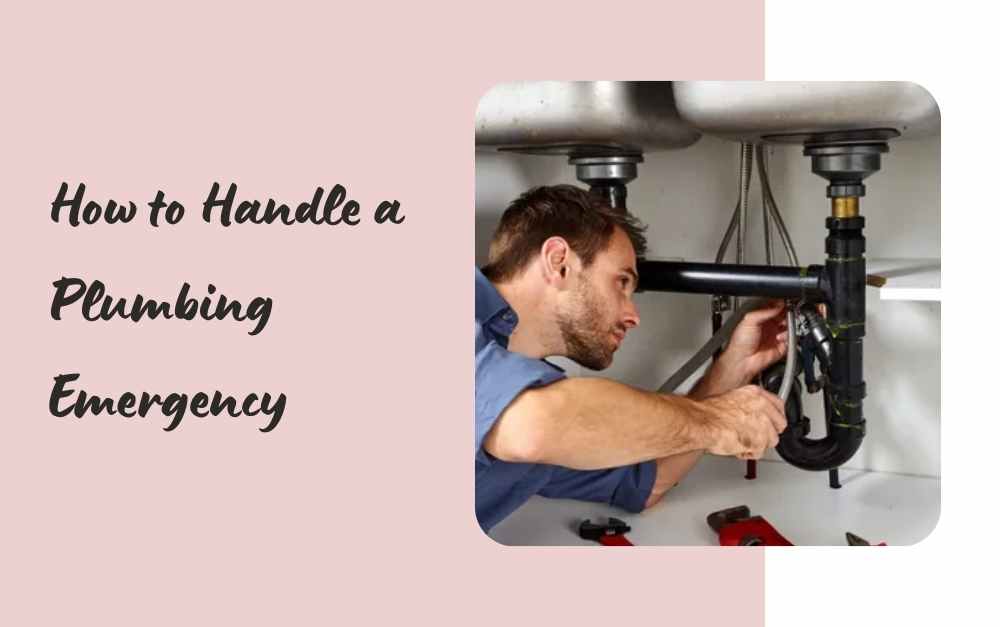Plumbing emergencies can happen at any time and often when you least expect them. Knowing how to handle these situations calmly and efficiently can save you from significant damage and expensive repairs. This guide will walk you through the essential steps to take during a plumbing emergency, ensuring your home remains safe and the damage is minimized.
Recognize the Signs of a Plumbing Emergency
The first step in handling a plumbing emergency is recognizing the signs. Some common indicators include unusual noises like gurgling or hissing, water stains on walls or ceilings, low water pressure, and water pooling around fixtures. If you notice any of these signs, it’s crucial to act quickly. Ignoring these early warnings can lead to more severe damage, such as flooding or structural issues.
Another important sign is an increase in your water bill. If you notice a sudden spike, it might indicate a hidden leak somewhere in your plumbing system. Unusual odors, especially a sewage smell, can also signify a plumbing problem that needs immediate attention. Recognizing these signs early can prevent a small issue from becoming a costly disaster.
NOTE : “Need reliable plumber in dubai? Don’t wait for a minor issue to turn into a major problem. Contact our experienced and professional plumber in Dubai today for prompt and efficient solutions. Call us now or visit our website to schedule your appointment!”
Shut Off the Water Supply
One of the most critical steps during a plumbing emergency is to shut off the water supply. This action can prevent further damage and give you time to assess the situation. Locate the main water valve in your home, usually found near the water meter or where the main water line enters your house. Turn it off immediately to stop the flow of water.
If the emergency is localized to a specific fixture, such as a toilet or faucet, you can shut off the valve directly connected to that fixture instead of the main water supply. This approach allows you to isolate the problem without cutting off water to your entire home. Knowing the location of these valves and how to operate them is crucial for any homeowner.
Assess the Situation
After shutting off the water supply, take a moment to assess the situation. Determine the source of the problem and the extent of the damage. This step is vital as it helps you decide whether you can handle the issue yourself or if you need to call a professional plumber. Look for visible signs of leaks, burst pipes, or damaged fixtures.
If the problem involves a burst pipe, check for any signs of water damage to walls, floors, and ceilings. Take note of any unusual noises or smells, as these can provide clues about the severity of the issue. Assessing the situation thoroughly can help you communicate effectively with a plumber if professional help is needed.
Temporarily Fix the Problem
Once you have assessed the situation, try to implement a temporary fix to control the damage. For instance, if you have a leaking pipe, use a pipe clamp or a piece of rubber and hose clamps to seal the leak temporarily. If the issue is with a toilet, use a plunger to try and clear any blockages. These temporary fixes can help prevent further damage while you wait for professional help.
In the case of a minor leak, wrapping the pipe with duct tape can also provide a temporary solution. If the leak is more significant, placing a bucket under the leak to catch dripping water can prevent water damage to your floors. Remember, these are only temporary measures, and professional repair will still be necessary to fix the problem permanently.
Call a Professional Plumber
Even if you manage to implement a temporary fix, it is essential to call a professional plumber. Plumbing systems are complex, and what may seem like a minor issue can often be a symptom of a larger problem. A licensed plumber has the expertise and tools to diagnose and fix the issue correctly, ensuring it does not recur.
When calling a plumber, provide them with as much information as possible about the problem. Describe the signs you noticed, any temporary fixes you implemented, and any other relevant details. This information can help the plumber arrive prepared and equipped to handle the emergency efficiently.
Prevent Future Emergencies
After resolving the immediate plumbing emergency, take steps to prevent future issues. Regular maintenance is key to keeping your plumbing system in good condition. Schedule annual inspections with a professional plumber to identify and address potential problems before they escalate.
Additionally, be mindful of what you put down your drains. Avoid flushing non-degradable items, such as wipes and sanitary products, down the toilet. In the kitchen, avoid pouring grease and food scraps down the sink, as these can cause blockages. Educating your household members about proper plumbing use can go a long way in preventing emergencies.
Create an Emergency Kit
Being prepared can make a significant difference during a plumbing emergency. Create an emergency kit that includes essential tools and supplies such as a wrench, pipe tape, a plunger, and a flashlight. Having these items on hand can help you respond quickly and effectively when an emergency arises.
Store your emergency kit in an easily accessible location, and make sure all household members know where it is and how to use the tools. Additionally, keep the contact information of a reliable plumber in the kit, so you can quickly call for professional help when needed. Being prepared can help you handle emergencies with confidence and minimize damage.
Educate Your Household
Everyone in your household should know how to respond during a plumbing emergency. Educate them on the location of the main water valve and how to shut it off. Teach them to recognize the signs of a plumbing problem and what steps to take if they encounter one. This knowledge can help ensure a swift and effective response, reducing the risk of extensive damage.
Consider conducting a practice drill with your family to ensure everyone knows what to do in case of a plumbing emergency. This exercise can help reinforce the steps and make sure everyone feels confident in their ability to handle a situation. The more prepared your household is, the better equipped you will be to manage an emergency effectively.
Conclusion
Handling a plumbing emergency can be stressful, but with the right knowledge and preparation, you can manage it efficiently. Recognize the signs, shut off the water supply, assess the situation, implement temporary fixes, and call a professional plumber. Prevent future emergencies with regular maintenance, and create an emergency kit for quick response. By educating your household and staying prepared, you can protect your home from severe plumbing issues and ensure the safety and well-being of your family.
For more insightful articles related to this topic, feel free to visit algo360i










